XCOM: Chimera Squad Gameplay (PC HD)
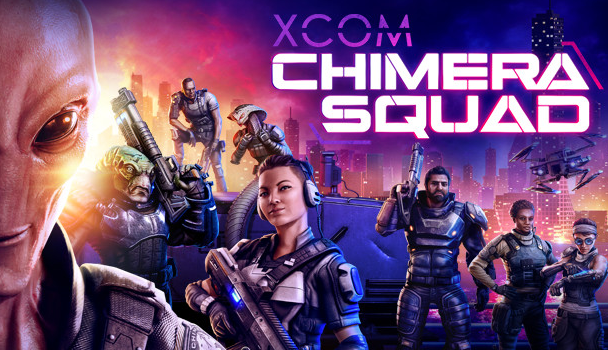
XCOM: Chimera Squad is set five years after the events of XCOM 2, in an Earth where humans and aliens coexist in a fragile balance that is close to spinning out of control after an attack on the mayor of Ciudad 31. The XCOM squad that gives its name the game will have to assume the investigation and maintain control over a territory where the interests of various factions collide.
This spin-off of the Firaxis strategy title takes advantage of the new setting to experiment with some of the pillars of the saga. It is a title more focused on fighting, which reduces the weight of the management part to launch us into tense confrontations in much smaller environments than is usual and that has a new approach to shifts. At times it seems like an experiment to see how many ideas that seemed sacred can be modified without altering the essence.

The importance of a good entry in XCOM
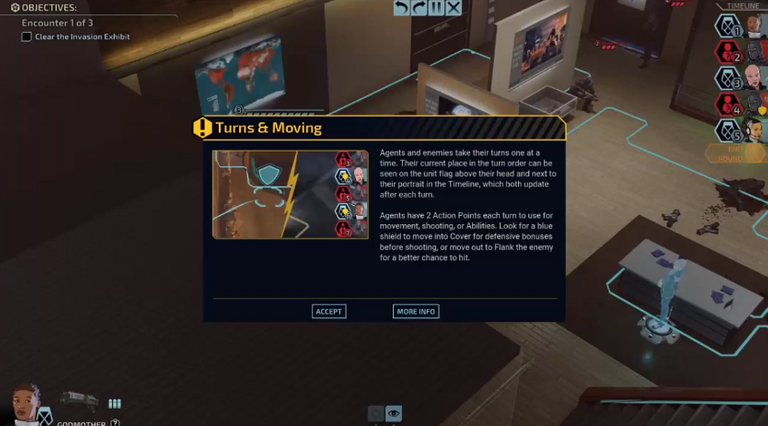
After betting on various aesthetics in previous installments of the XCOM saga, each more diverse - one of them from the mid-twentieth century - this now gives way to the one mentioned above. And it does so in a more than efficient way, to drive away fears. The entire visual look appears impregnated with metallic and vivid colors to reflect that future Blade Runner that will one day arrive. In fact, the game not only captures it well, but also takes advantage of this aesthetic in very specific points, that is, it takes advantage of it. For example, it does not include “traditional” cinematics: it opts for pseudo comic vignettes where these tonalities gain more force if possible. Difficult decision, but rectified with great skill.
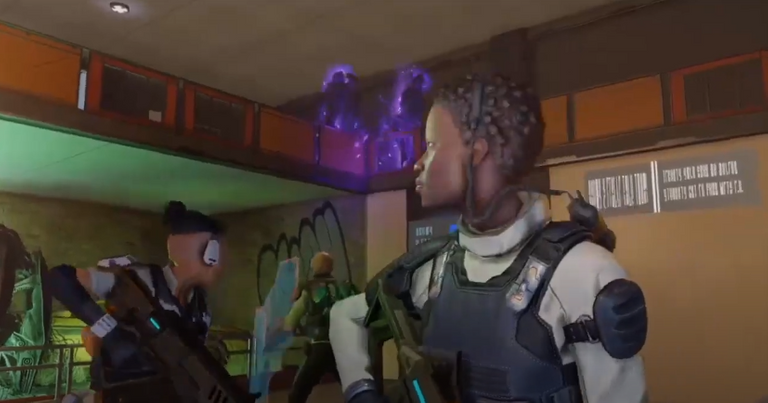
One of the most obvious new mechanics can be found in Entry Mode, a kind of "Turn 0" in which we can choose between different entry points to a specific location. Will we enter the office through the front door or through the glass in the ceiling? Will we divide our forces to clean a room from multiple sides, or will we keep it together and compact in a single block?
Each time we advance to a new area, we will be given several entry options, each with its advantages and disadvantages well exposed in it, and we will be the ones who will decide how to distribute our team before starting the assault on the indicated area. Upon entering, depending on our choice, we will have a first shot of opportunity with our troops and we will be able to surprise some enemies to have a notable tactical advantage during the start of combat.

Interspersed turns to shake the shaker
Another novelty we find is that XCOM: Chimera Squad shakes the shaker when it comes to shifts. Until now, in the saga it was normal for us to act on the one hand, moving all our units and, on the other, the enemy moving all her units as if it were a kind of chess game.
However, now Firaxis is committed to a formula of interspersed turns, distributing our units and those of our enemies in alternate turns, something that increases the challenge and gives us new variants and possibilities when choosing our next strategy. For example, we can prioritize eliminating the next enemy that has an action turn or try to focus our forces on another terrorist who is much more powerful even if he acts at the end of the round.
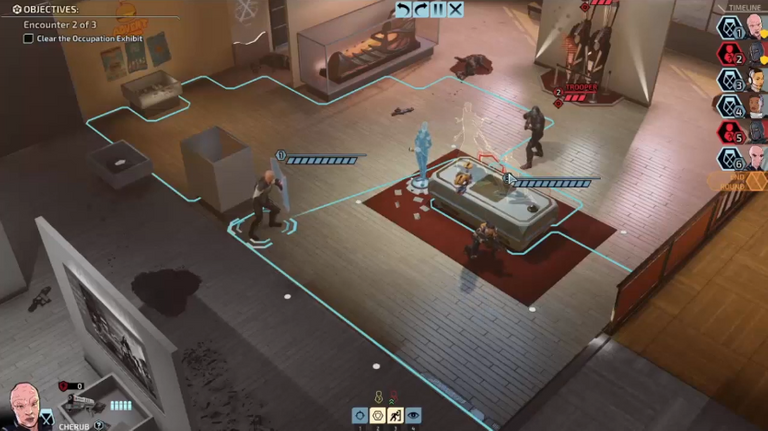
Both this mechanic of the interleaved turns and the Entry Mode seem like two successes to give more color to a playable formula that must evolve so as not to stagnate. Both seem well planned and really satisfactory, working very well in this small project and, probably, also having their place in an eventual XCOM 3.

Chimera Squad and City 31 management
Regarding the configuration of the campaign, four difficulty modes return, ranging from one that allows you to enjoy the story with fun but not very challenging combats, to the Impossible mode that is a constant torture. Along with them there are modifiers with options such as Iron Man, which is played with a single save that is overwritten with each decision we make (in normal games there are constant saves that save the passage of days and battles so that we can retry bad decisions or confrontations that have gone very bad), Extreme, which means the end of the campaign and the deletion of the save file if we lose a single mission.
The first difference in relation to the magnitude of the game compared to those who came before is the center of operations. No more rooms where you can manage the many aspects of our great army. We have a central table where you can select missions and some adjacent places where you can equip the squad, commission investigations or train them to gain new skills. All at a very basic level compared to what we have seen in XCOM 2, ideal for those who do not want to overwhelm themselves with management and scarce for those who do like to get lost in that ocean of interfaces and planning.
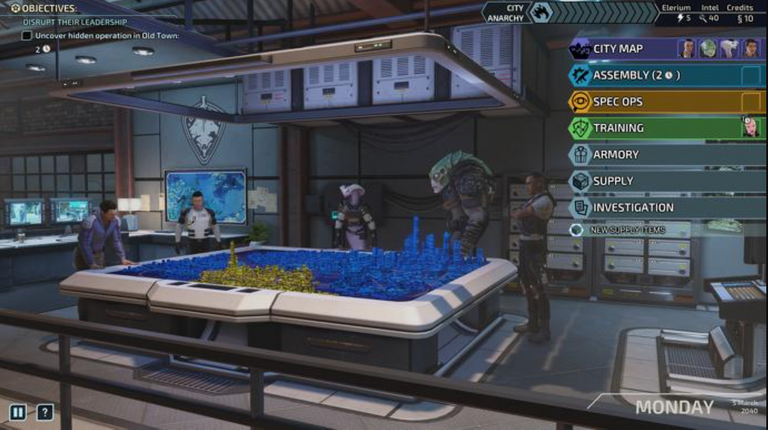

What I think of the game after playing
XCOM: Chimera Squad is tangible proof that Firaxis wants to experiment and not rest on its laurels; here it is far from being the best version of XCOM, but you can see the intention to expand the limits of the formula, test how new mechanics can be integrated and which ones are not as fundamental as they seemed. The result is as fun as it is uneven, but it opens up new conversations and potential avenues that will hopefully enrich the future of the franchise.